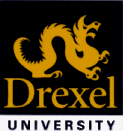
Pathology and Laboratory Medicine
Pathway
(curriculum as of Class of 2026)
|
|
Pathology and Laboratory Medicine
Pathway |
REVIEW FOR PATHWAY 2025-2026:
The Pathology and Laboratory Medicine discipline-based pathway is intended for those fourth-year medical students interested in pursuing a career in pathology. Suggested elective courses as described below have been selected based on their close affiliation with Pathology or their contribution to a greater understanding of disease processes.
Pathway Director and Site Coordinator:
Drexel
University College of Medicine
Cheryl A. Hanau, M.D.
(215) 991-8185 Phone
ch48@drexel.edu
Coordinator: Heather McLaughlin
(215) 991-8518 Phone
(215) 843-7738 Fax
hgm28@drexel.edu
Queen Lane, Room C9G
The Pathology and Laboratory Medicine Pathway has been constructed
to:
Provide the student with an opportunity to gain an understanding of
the roles and functions of the pathologist in the various service
areas of Anatomic Pathology and Laboratory Medicine through a survey
course.
Provide the student with the opportunity for a concentrated elective experience in a Pathology subspecialty through arrangement with the Pathway Director.
Allow the student, through suggested electives in medical and surgical subspecialties to observe and participate in the close interaction between pathologists and clinicians, with an emphasis on the consultant role of the pathologist in patient management.
Required Courses
Emergency Medicine Subinternship
Emergency Medicine Subinternship is required by the University as a senior year
course. During this course we would expect that the student will learn the principles of rapid assessment and stabilization of critically ill and injured patients; learn the initial evaluation and management of the wide range of undifferentiated patient complaints in the Emergency Department; gain skills, specialized examination technique and real-time interpretation of diagnostic studies; participate in common and more advanced procedures.
Required Subinternship Objectives: Pathology Pathway students may select a required Medicine Subinternship, OB/GYN Subinternship, Pediatric Subinternship or Surgery Subinternship.
By the end of the rotation learners will be able to:
Anatomic Pathology and/or Laboratory Medicine Rotation
If scheduling at an Away elective, please obtain approval of desired Away rotation from Pathway Director.
The disciplines of Anatomic Pathology are explored through close
interaction with faculty and residents with responsibilities in the
divisions of Surgical Pathology, Autopsy Pathology, and/or Cytopathology.
The
student will observe and with proper supervision, take part in the
gross examination and handling of surgical pathology specimens
(including frozen section examination), in the dissection of
autopsies and in daily microscopic review of surgical pathology and
cytology specimens. The student will become acquainted with the role
of the diagnostic Anatomic Pathologist in patient care.
Laboratory Medicine generally consists of experiences in the divisions of Hematology and Transfusion Medicine. The student will observe and with proper supervision, take part in the analysis and sign-out of specimens in the various divisions. The consultative role of the Clinical Pathologist will be emphasized.
Pathology Subspecialty Elective Rotations
Electives in each of the seven Pathology subspecialty areas
(Surgical Pathology, Autopsy Pathology, Cytopathology, Microbiology,
Clinical Chemistry, Hematology and Transfusion Medicine) are useful to students. The elective
will afford the student the opportunity for an in-depth experience in
one of the areas initially encountered in the survey course.
Medicine or Pediatric Subspecialty Elective Rotation
An elective rotation in a medicine or pediatric subspecialty
field which features the obtaining of specimens for
histologic/cytologic/microbiologic evaluation is suggested so the
student in the Pathology and Laboratory Medicine pathway can be part
of the close interaction between the various laboratories and the
clinical team. The medicine and pediatric subspecialty fields of
Infectious Disease, Hematology/Oncology, Pulmonary Medicine and
Gastroenterology are examples of areas providing this
opportunity.
General Surgery or Surgical Subspecialty Elective
Rotation
An elective rotation in general surgery or a surgery
subspecialty field which features the obtaining of specimens for
histologic/cytologic/microbiologic evaluation is suggested so that
the student in the Pathology and Laboratory Medicine pathway can be
part of the close interaction between the various laboratories and
the clinical team. The fields of general surgery and the surgical
subspecialties of Urology, Otolaryngology and Gynecologic Oncology
are examples of areas providing this opportunity.
Each section of the laboratory is well stocked with the appropriate textbooks, many study sets and Check Sample materials available for student study and review. Additionally, the conference schedule in both Anatomic Pathology and Laboratory Medicine is quite extensive and students on the rotations are welcome to attend any departmental conference in addition to those which may be required while completing a specific component of the rotation.
Evaluation of the Student
The student's performance in each rotation will be evaluated by supervising physicians, and residents when appropriate, using the standard Drexel University College of Medicine clinical evaluation form. Students not receiving a grade of satisfactory or higher will be counseled and provided with remediation.
Evaluation of 4th year Courses
Upon completion of each rotation, students are encouraged to complete the end-of-rotation evaluation form in DOCSS. Students have the opportunity to provide feedback on the rotation as well as on specific faculty (and residents) with whom they worked in DOCSS. All feedback is de-identified.
Evaluation of the Pathway
Students are encouraged to complete an end-of-year Pathway evaluation for the Pathway. The feedback from this evaluation will help in advising future students more effectively.
Administration
of the Pathway
The Pathway Director will be responsible for oversight of
the Pathology and Laboratory Medicine Pathway and the students
enrolled in the pathway.